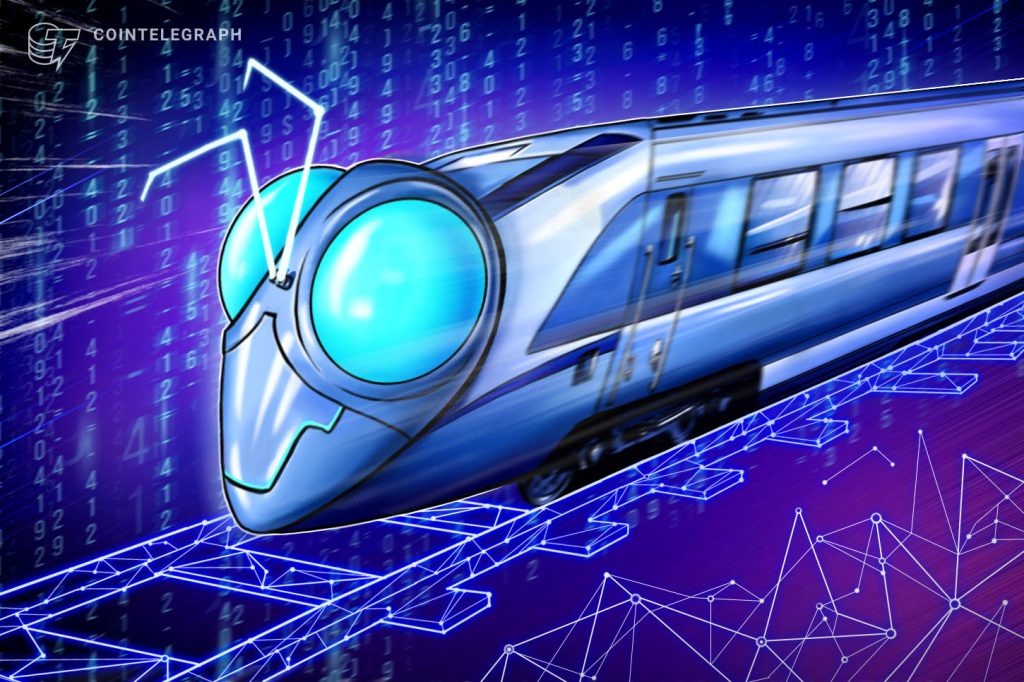Polygon sets late March launch date for its zkEVM mainnet beta


The Ethereum scaling solutions provider is preparing to launch its long-awaited Ethereum Virtual Machine roll-up technology.
The long-awaited scaling upgrade from Ethereum layer-2 solution provider Polygon (MATIC) has been announced, with the beta launch of its zero-knowledge Ethereum Virtual Machine (zkEVM) mainnet slated for March 27.
In a Feb. 14 blog post, Polygon said that after three and a half months of “battle testing,” the system will be ready for the mainnet launch next month.
Roses are red
Violets are blue
Poems are hard
Mainnet Beta is hereON MARCH 27, Polygon #zkEVM launches the future of Ethereum scaling
https://t.co/OqSOYTn8Uv pic.twitter.com/kpXavea3ff
— Polygon (@0xPolygon) February 14, 2023
It’s been touted as “seamless scaling for Ethereum,” and was launched as a testnet in December last year.
The development of the zk-rollup scaling technology has been ongoing for the past three years. During that time, the Polygon zkEVM system has hit several milestones noted by the team.
These include the deployment of more than 5,000 smart contracts, the generation of over 75,000 zk-proofs, more than 84,000 wallets and two public third-party audits.


The team noted that security is the highest priority and that’s the reason “why Polygon zkEVM has been run through a gauntlet of tests and audits.”
The technology uses zero-knowledge proofs — cryptographic confirmations that, in the context of scaling, enable platforms to validate mass amounts of transaction data before bundling and confirming them on Ethereum.
Polygon is not the only team working on a zkEVM solution. Scaling provider zkSync is developing similar EVM technology with its zkPorter — which puts essential transaction data off-chain.
Scroll, another scaling solutions provider, is also building a zkEVM solution in collaboration with the Privacy and Scaling Explorations group, part of the Ethereum Foundation.
The Ethereum Foundation is also funding a project called Applied ZKP, which aims to develop an EVM-compatible zk-rollup.
Related: Polygon tests zero-knowledge rollups, mainnet integration inbound
The team explained the significance of the technology, stating that true EVM-equivalence means Ethereum can be scaled “without resorting to half-measures.”
“The best way to scale Ethereum is to preserve the existing Ethereum ecosystem: code, tooling, and infrastructure needs to just work. And that’s what Polygon zkEVM is aiming to achieve.”
The scaling tech also enables significant transaction cost savings. Proof costs for a large batch of hundreds of transactions are down to about $0.06 and less than $0.001 for a simple transfer, the team added.
Matter Labs, the firm behind Polygon, raised $50 million in a Series B round led by Andreessen Horowitz to build EVM-compatible zk-Rollups in November 2021.
Polygon’s native token, MATIC, has reacted positively to the announcement with a 5.3% gain over the past 12 hours or so. As a result, the token was trading for $1.24 at the time of writing, according to Cointelegraph data.



